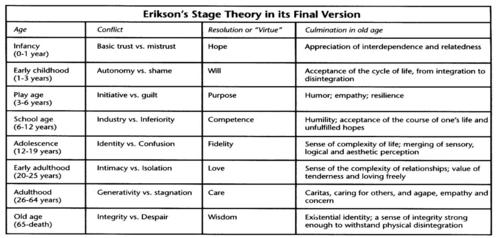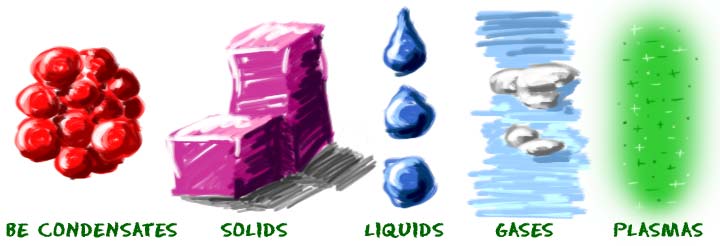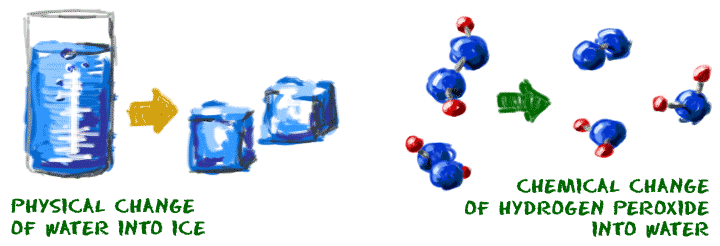YOUR POWER IS IN YOUR CELLS!

surrender (v.)
mid-15c., “to give (something) up,” from Old French surrendre “give up, deliver over” (13c.), from sur- “over” (see sur- (1)) + rendre “give back” (see render (v.)). Reflexive sense of “to give oneself up” (especially as a prisoner) is from 1580s. Related: Surrendered; surrendering.
surrender (n.)
early 15c., in law, “a giving up” (of an estate, land grant, interest in property, etc.), from Anglo-French surrendre, Old French surrendre noun use of infinitive, “give up, deliver over” (see surrender (v.)).
Carl Jung:
“The fact that a man who goes his own way ends in ruin means nothing … He must obey his own law, as if it were a daemon whispering to him of new and wonderful paths … There are not a few who are called awake by the summons of the voice, whereupon they are at once set apart from the others, feeling themselves confronted with a problem about which the others know nothing. In most cases it is impossible to explain to the others what has happened, for any understanding is walled off by impenetrable prejudices. “You are no different from anybody else,” they will chorus or, “there’s no such thing,” and even if there is such a thing, it is immediately branded as “morbid”…He is at once set apart and isolated, as he has resolved to obey the law that commands him from within. “His own law!” everybody will cry. But he knows better: it is the law…The only meaningful life is a life that strives for the individual realization — absolute and unconditional— of its own particular law … To the extent that a man is untrue to the law of his being … he has failed to realize his own life’s meaning.”
? Carl Jung
You will love what you have access to today!
- Trust vs. Mistrust. …
- Autonomy vs. Shame and Doubt. …
- Initiative vs. Guilt. …
- Industry vs. Inferiority. …
- Identity vs. Role Confusion. …
- Intimacy vs. Isolation. …
- Generativity vs. Stagnation. …
- Ego Integrity vs. Despair.
Initiation, Activation and Community to help overcome Separation, Depression, Scarcity, and Anxiety!
YOU COULD BE in total FLOW and this Class will take you to the next level!
YOU will get trained on HOW TO USE SURRENDER IN THE MYSTERY SCHOOL TRADITIONS!!!!
Einstein talked about his dream to find a depth to science! His dream rejected a conflict between science and religion, and held that cosmic religion was necessary for science.
For Einstein, “science without religion is lame, religion without science is blind.” He told William Hermanns in an interview that “God is a mystery. But a comprehensible mystery.
Today we discuss Mystery School Teachings connected to YOU BEING ABLE TO Surrender!
Today, you will get some key points that will help you get more time!
~Do not let your time be wasted!
You can get very clear on
“How to use Time!”
Take advantage of the energy of Everyday!
You have technology within yourself!
What is matter? Matter is everything around you. Atoms and compounds are all made of very small parts of matter. Those atoms go on to build the things you see and touch every day. Matter is defined as anything that has mass and takes up space (it has volume).
What is mass? Mass is the amount of matter in an object. You might have a small object with a lot of mass such as a statue made of lead (Pb). You might have a large object with very little mass such as a balloon filled with helium (He). You should also know there is a difference between mass and weight. Mass is a measure of the matter in an object while weight is a measure of gravity’s pull on an object.
What is volume? Volume is the amount of space something occupies. Words such as big, little, long, or short are used to describe volumes. A marble takes up a small volume while a star occupies a large volume. Different states of matter will fill volumes in different ways.
Even though matter can be found all over the Universe, you will only find it in a few forms (states) on Earth. We cover five states of matter on the site. Each of those states is sometimes called a phase. There are many other states of matter that exist in extreme environments. Scientists will probably discover more states of matter as we continue to explore the Universe.
Five States of Matter

What are the main states of matter? Everyone should know about solids, liquids, gases, and plasmas. Scientists have always known about solids, liquids, and gases. Plasma was a new idea when it was identified by William Crookes in 1879. We also like to talk about the Bose-Einstein condensate (BEC). It’s a fun state of matter when you remove almost all energy from a system. The scientists (Cornell, Ketterle, and Wieman) who worked with the Bose-Einstein condensate received a Nobel Prize for their work in 2001.
What makes a state of matter? It’s all about the physical state and energy in the atoms and molecules. Think about solids. Physical properties of a solid often include “hard” and “brittle.” Liquids are fluidy, move around a little, and fill up containers. Gases are always around you, but the molecules of a gas are much farther apart than the molecules in a liquid. If a gas has an odor, you’ll often be able to smell it before you can see it. The BEC is all about atoms that are closer and less energetic than atoms in a solid.
Changing States of Matter

What is a physical change in matter? Molecules can move from one physical state to another (phase change) and not change their atomic structure. Oxygen (O2) gas has the same chemical properties as liquid oxygen. The liquid state is colder and denser (less energy), but the molecules are the same. Water (H2O) is another example. A water molecule is made up of two hydrogen (H) atoms and one oxygen (O) atom. It has the same molecular structure whether it is a gas, liquid, or solid. Although its physical state may change because of different amounts of energy, its atomic structure remains the same.
So what is a chemical change in matter? Let’s start with that glass of pure water. If the formula of water were to change, that would be a chemical change. If you could add a second oxygen atom to a water (H2O) molecule, you would have hydrogen peroxide (H2O2). The molecules would not be “water” anymore. In reality, there are a variety of steps that go into creating hydrogen peroxide from water.
Physical changes are related to changes in the immediate environment such as temperature, pressure, and other physical forces. Chemical changes occur when the bonds between atoms in a compound are created or destroyed. Generally, the basic chemical structure does not change when there is a physical change. Of course, in extreme environments such as the Sun, no molecule is safe from destruction.
Vicktor Frankl
—1—
“Don’t aim at success — the more you aim at it and make it a target, the more you are going to miss it. For success, like happiness, cannot be pursued; it must ensue, and it only does so as the unintended side-effect of one’s personal dedication to a cause greater than oneself, or as the by-product of one’s surrender to a person other than oneself.”
—2—
“Everything can be taken from a man but one thing; the last of the human freedoms — to choose one’s attitude in any given set of circumstances.”
—3—
“Everyone has his own specific vocation or mission in life to carry out a concrete assignment which demands fulfillment. Therein he cannot be replaced, nor can his life be repeated. Thus, everyone’s task is as unique as is his specific opportunity to implement it.”
—4—
“Live as if you were living already for the second time and as if you had acted the first time as wrongly as you are about to act now!”
—5—
“The prisoner who had lost his faith in the future — his future — was doomed. With his loss of belief in the future, he also lost his spiritual hold; he let himself decline and became subject to mental and physical decay.”
—6—
“I consider it a dangerous misconception of mental hygiene to assume that what man needs in the first place is equilibrium or, as it is called in biology, “homeostasis,” i.e., a tensionless state but rather the striving and struggling for a worthwhile goal, a freely chosen task. What he needs is not the discharge of tension at any cost but the call of a potential meaning waiting to be fulfilled by him.”
—7—
“Life ultimately means taking the responsibility to find the right answer to its problems and to fulfill the tasks which it constantly sets for each individual.”
—8—
“Man has suffered another loss in his more recent development inasmuch as the traditions which buttressed his behavior are now rapidly diminishing. No instinct tells him what he has to do, and no tradition tells him what he ought to do; sometimes he does not even know what he wishes to do. Instead, he either wishes to do what other people do (conformism) or he does what other people wish him to do (totalitarianism).”
—9—
“A man who becomes conscious of the responsibility he bears toward a human being who affectionately waits for him, or to an unfinished work, will never be able to throw away his life. He knows the ‘why’ for his existence, and will be able to bear almost any ‘how.’”
—10—
“What matters, therefore, is not the meaning of life in general but rather the specific meaning of a person’s life at a given moment. To put the question in general terms would be comparable to the question posed to a chess champion: “Tell me, Master, what is the best move in the world?” There simply is no such thing as the best or even a good move apart from a particular situation in a game and the particular personality of one’s opponent.”
—11—
“When we are no longer able to change a situation — just think of an incurable disease such as an inoperable cancer — we are challenged to change ourselves.”
—12—
“Freedom, however, is not the last word. Freedom is only part of the story and half of the truth. Freedom is but the negative aspect of the whole phenomenon whose positive aspect is responsibleness. In fact, freedom is in danger of degenerating into mere arbitrariness unless it is lived in terms of responsibleness. That is why I recommend that the Statue of Liberty on the East Coast be supplemented by a Statue of Responsibility on the West Coast.”
Mystery School Training |Alchemy Sessions
Know your Story through the eyes of LOVE, POSSIBILITY, and THE GREATEST GOOD YOU CAN CREATE!
___________________________________
ONLINE
How to Manifest Everything Your Heart Desires
To be in this very private class- Call Dr Sarah and see if this investment is right for you!
——
Miracle Maker- You can attend- Call Greg or Dr. Sarah to RSVP
Einstein:
424 757 4197
Insanity: doing the same thing over and over again and expecting different results.Imagination is more important than knowledge.If you can’t explain it simply, you don’t understand it well enough.Two things are infinite: the universe and human stupidity; and I’m not sure about the universe.Life is like riding a bicycle. To keep your balance you must keep moving.No problem can be solved from the same level of consciousness that created it.The important thing is not to stop questioning. Curiosity has its own reason for existing.I have no special talents. I am only passionately curious.Anyone who has never made a mistake has never tried anything new.Logic will get you from A to B. Imagination will take you everywhere.
HY-DRO-GEN

Let’s start our tour of the periodic table with hydrogen (H). Why start with hydrogen? Hydrogen is the first element in the periodic table and the most basic and common of all elements in the Universe. Scientists use the letter “H” to represent hydrogen in chemical equations and descriptions.
Over ninety percent of all the atoms in the Universe are hydrogen atoms. By mass, hydrogen makes up about 75% of all matter in the Universe. Hydrogen atoms are also the smallest and lightest of all the atoms with only one electron and one proton in a common single hydrogen atom (called protium).
Although it has been around forever (possibly the first element to ever form), it took a chemist named Antoine-Laurent de Lavoisier to name it in 1783. The name hydrogen comes from the Greek word “hydro” which means water (H2O) and the word “genes” which means creator. Lavoisier showed that hydrogen was in all water molecules after discovering that water was created when hydrogen burned in air.
In addition to water, you can find hydrogen closer to home in every organism, blowtorches, and low temperature freezing processes. Farther away from home, you will find it in all stars, including the nuclear reactions that power the Sun.
Where is Hydrogen Found?

Welding
Sometimes you see someone working with a blowtorch to cut or welding to bring things together. Those processes need gases that can burn very hot. In welding, electricity splits hydrogen molecules and when the atoms recombine, huge amounts of heat are released.

The Sun
One of the elements that makes the sun burn so brightly is hydrogen. While hydrogen burns really easily on Earth, the burning hydrogen on the Sun and other stars is the result of nuclear reactions that rely on istotopes of hydrogen.

Rocket Fuel
Hydrogen is awesome as a rocket fuel because of all of the energy released. The hydrogen is compressed into a liquid form(H2) and stored in tanks. It is combined with liquid oxygen (O2) to create the most efficient reaction and release of energy.

Plants and Sugars
Hydrogen is in all plants and living things in general. Sure we all have water, but there are also sugars generated through plant photosynthesis. That’s why animals eat plants… For the sugars and energy-filled compounds.

